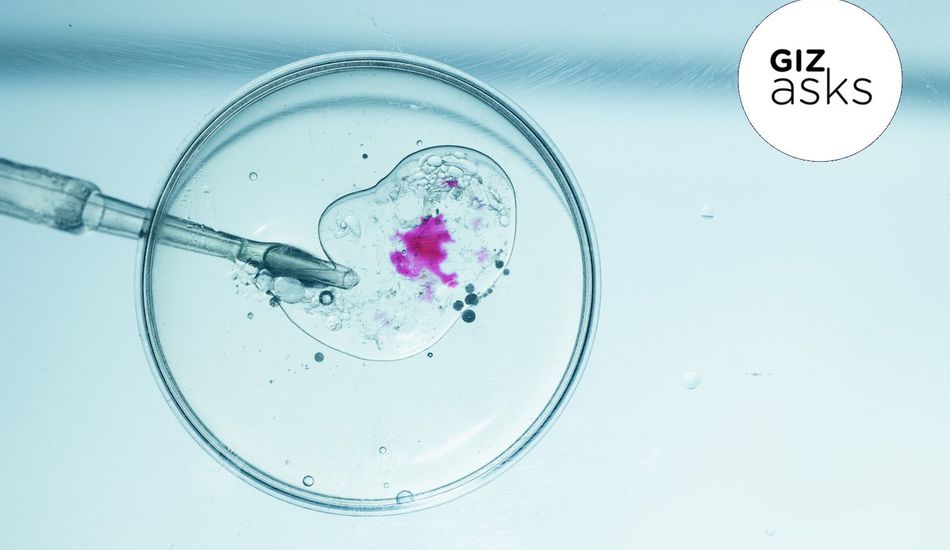
Ethical Considerations of Genetically Modifying Children: A Complex Debate
The idea of genetically modifying our children is no longer confined to science fiction. With the advent of CRISPR and other gene-editing technologies, the possibility of altering the human germline – modifying eggs, sperm, or embryos in a way that those changes are passed down to future generations – is becoming increasingly real. While the potential to eradicate inherited diseases is alluring, it also raises profound ethical questions that demand careful consideration.
For instance, several scientific organizations have proposed a 10-year moratorium on heritable germline editing, emphasizing the serious safety concerns and potential irreversible consequences. It's not just about the immediate impact; it's about the ripple effects that could extend for generations. This isn't just about playing God; it's about playing with the very fabric of human existence, and we need to be damn sure we know what we're doing.
However, the reality is that this technology already exists. Remember the Chinese scientist He Jiankui, who controversially edited the genes of human embryos? While his actions were widely condemned, and he faced legal repercussions, it underscored the fact that human heritable germline editing is not some distant dream but a present-day capability. The ethical debate, therefore, isn't about whether we can do it, but whether we should.
The Specter of Eugenics and Designer Babies
Diving deeper, the specter of eugenics looms large. Throughout history, attempts to "improve" the human race have often been intertwined with discriminatory ideologies. We must learn from the dark chapters of the past, like Nazi Germany's race hygiene theories or even the eugenics movements in the US, where families deemed "genetically superior" were encouraged to procreate. The risk of perpetuating social inequalities through genetic enhancements is a serious concern. Imagine a future where only the wealthy can afford to give their children genetic advantages, creating a divide between the "genetically enhanced" and the "natural."
Furthermore, what constitutes an "improvement" is subjective and culturally dependent. While some may see deafness as a condition to be "cured," others within the Deaf community view it as a cultural identity and a source of pride. Similarly, attempts to alter physical traits like skin color could perpetuate harmful racial biases.
Access, Autonomy, and Unintended Consequences
In addition to the ethical considerations, there are practical challenges to consider. For example, ensuring equitable access to gene-editing technologies is paramount. If these treatments are only available to the privileged few, it could exacerbate existing inequalities and create a new form of genetic discrimination.
Thinking about the autonomy of future generations is also crucial. If we genetically engineer children to possess specific traits or excel in particular fields, are we limiting their freedom to choose their own paths? Are we imposing our own desires and expectations onto them, potentially stifling their individuality and creativity? It’s a bit like choosing their career path before they're even born – a decision that should ultimately be theirs.
Moreover, we must acknowledge the potential for unforeseen consequences. While gene-editing technologies are becoming more precise, they are not foolproof. Off-target effects, where unintended genes are altered, could lead to unexpected health problems or developmental issues. The complexity of the human genome means that we cannot fully predict the long-term effects of these interventions.
Cautious Optimism and the Path Forward
Despite these concerns, many scientists and ethicists remain cautiously optimistic about the potential of gene editing to treat and prevent inherited diseases. Somatic gene therapy, which alters genes in specific cells or tissues but does not affect the germline, has already shown promise in treating conditions like sickle cell disease.
Ultimately, the decision of whether or not to pursue heritable germline editing requires a broad societal dialogue involving scientists, ethicists, policymakers, and the public. We must weigh the potential benefits against the risks and ensure that these technologies are developed and used responsibly. In the end, the goal must be to improve human health and well-being while upholding fundamental ethical principles such as justice, autonomy, and respect for human dignity. It's a complex journey, but one we must undertake thoughtfully and collaboratively.
Source: Gizmodo